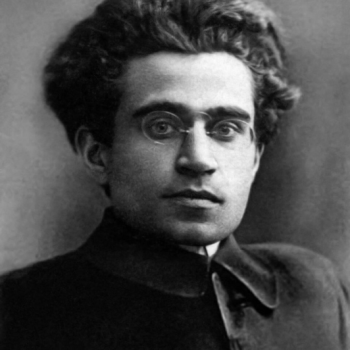Now Featured in the Patheos Book Club
The Gospel Of Happiness
Rediscover Your Faith Through Spiritual Practice And Positive Psychology
by Christopher Kaczor
Q. Why did you write The Gospel of Happiness?
This book arose through personal experience. After a serious set-back, I had a few years of feeling very unhappy and searching for something that could remedy the blues. In looking into becoming happier myself, I discovered "positive psychology," a branch of psychology focusing on optimism, well-being, and flourishing. I had previously read both philosophical and theological treatments of happiness, but this psychology approach was new to me. As I read I was amazed at the overlap between what positive psychologists found and the teachings of Christian spiritual guides, such as the founder of the Jesuits St. Ignatius Loyola.
Q. Early in the book you mention that your only personal experience in psychological counseling had not been positive and that you had always viewed psychology as an alternative to religion. Can you tell us a little bit about how your thoughts on the matter changed when you discovered "positive psychology"?
In my mind, I thought of psychology and spirituality as two alternative ways to pursue happiness. What I discovered was that these two approaches are often complementary, and in deed can be mutually reinforcing. Positive psychology provides empirical confirmation of the happiness producing effects of Christian practices, such as serving others, giving thanks, and forgiving others. Moreover, psychology also indicates ways to enhance Christian spiritual practices. At the same time, Christian wisdom enhances and deepens recommendations found in positive psychology. So, rather than think it is either psychology or spirituality, ideally it can be both psychology and spirituality.
Q. For the purpose of this book, how do you define happiness? How do you measure it?
In this work, I think about happiness in terms of positive emotion, engagement, relationships, meaning, and achievement (PERMA, as Martin Seligman calls it). Part of happiness is positive emotion, such as joy, optimism, and excitement. But happiness is more than just 'feeling good.' It also includes engagement with the flow of life when we are so caught up in our hobbies, work or activity that an hour or two feels like ten minutes. At the heart of happiness is good relationships with people. The findings of positive psychology reinforce the ancient teachings of Aristotle that no one can be happy without friends. Likewise, happiness requires meaning which is making a positive difference beyond the self such as to family, church, community, neighborhood, or school. The final aspect of happiness is seeking achievement of various goals-personal, social, spiritual, and professional.
Q. In The Gospel of Happiness, you highlight the many ways in which positive psychology and Christian practice overlap. You offer helpful suggestions on how to become happier in everyday life and how to deepen Christian practice based on contemporary psychological insights. Do you have a favorite activity that combines positive psychology and Christian practice?
The very first practice I learned from positive psychology is called the "Three Blessings Exercise." At the end of the day, simply think over how the day went looking for whatever went well—a tasty nectarine at lunch, a funny conversation with a neighbor, a task finally off the "to do" list, or a moment of relaxation with hot coffee. Once you've come up with three things, you write down what happened and why it happened. Research indicated that "Three Blessings Exercise" reduces depression and helps increase happiness by making us more aware of the good things that are already in our lives to which we may have not paid much attention. Centuries ago in his Spiritual Exercises, St. Ignatius Loyola recommended something like "Three Blessing Exercise" in what is called the Examin. When we look for what is good we are more likely to find and celebrate what is good. When we thank God for the joys we find in life, our gratitude is enhanced.




